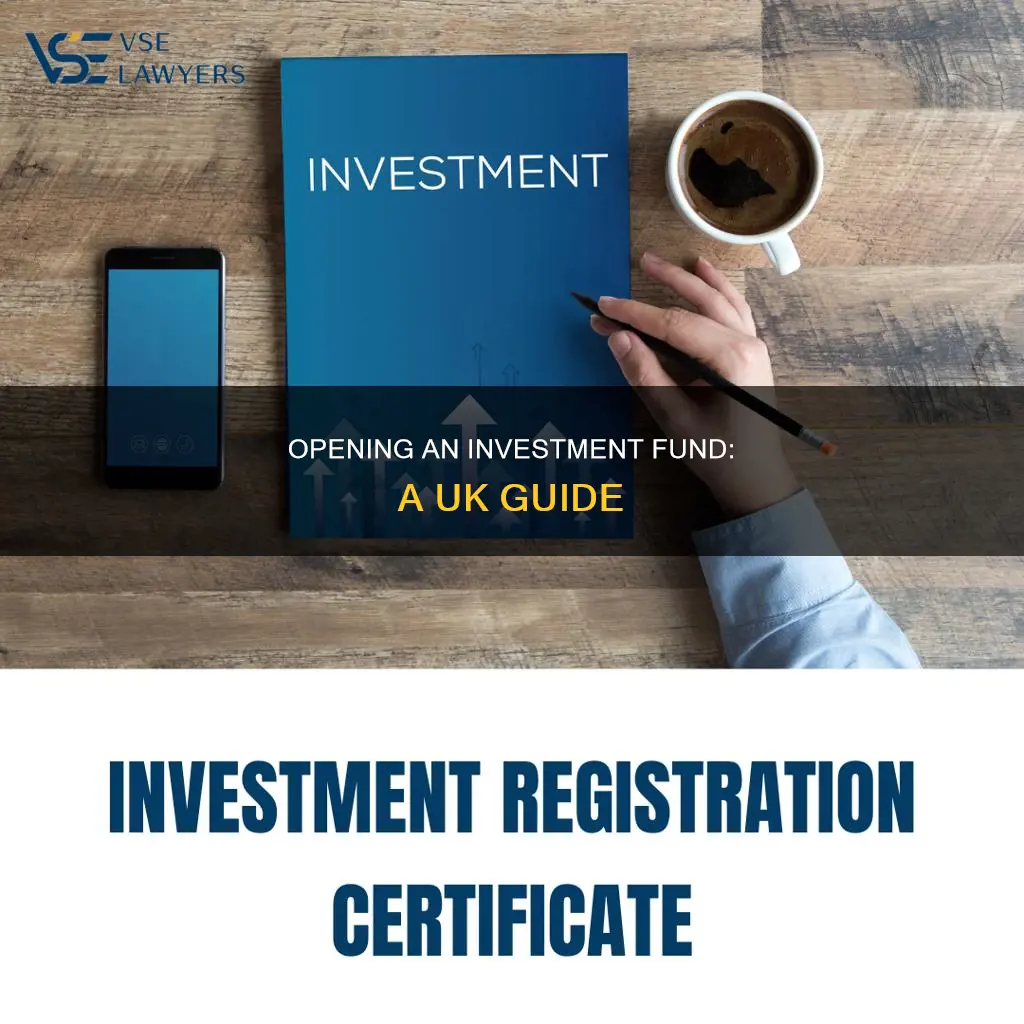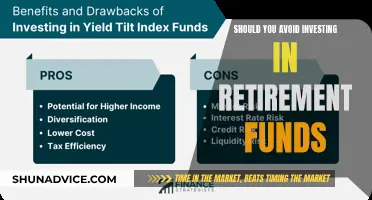
Setting up an investment fund in the UK can be a complex process, with many legal and regulatory requirements to navigate. To start, you'll need to assemble a team with the necessary qualifications and experience, including someone to fill the CF 30 role as defined by the Financial Conduct Authority (FCA). You'll also need to establish a fund management company, appoint the required officers, and create a business plan to submit to the FCA for approval. This can be a lengthy and costly process, and you may need to hire external help to ensure compliance with all laws and regulations. Once approved, you'll need to set up your operations, including choosing a jurisdiction and structure for your fund, and determining share classes and fees. Marketing and solicitation activities are governed by strict rules, and you'll need to consider how to reach potential investors without providing financial advice. Overall, establishing an investment fund in the UK requires careful planning, a strong understanding of the regulatory environment, and the ability to navigate complex legal and financial requirements.
What You'll Learn

Find someone qualified to run it
Your first step is to find someone qualified to run your investment fund. Ideally, that will be you, but if you don't have the necessary experience and qualifications, you will need to employ someone to fill what is known by the Financial Conduct Authority (FCA) as the CF 30 role. This is someone who the FCA judges to have sufficient experience and knowledge, either from having passed exams or spent enough time in the market, to have the necessary skills.
Remember that this is not like a driving licence, where you have to pass a specific test. For example, Fred Goodwin was allowed to run a bank even though he had no banking qualifications.
You will also need a backup CF 30 function in case the first person wants a holiday or becomes ill. Alternatively, you can ask a suitably qualified friend to act as a locum.
You will also need a Compliance and/or Money Laundering Officer, known as a CF10 function. This person is responsible if things go wrong and the FCA comes knocking on the door.
In addition, you will need a Compliance Officer.
Set up your fund management company
The next step is to form a company via Companies House in the usual way. You will also need an office, a computer, and a business contingency plan (BCP) in case your office becomes unusable. You will probably also require data feeds for news and price information on whatever securities you will be investing in.
Prepare the company coffers
Your company will need working capital to get going on top of the regulatory capital that you can’t use. This can't be debt because that would affect the Tier 1 capital.
Find another company to provide services
To run a fund, you need to take money in from the public, keep it in a separate account, keep track of the investments you make, any dividends received, deduct your costs and any others, and write to the investors regularly with updates.
The FCA requires you to appoint a depositary, which consists of two roles: a trustee and a custodian. A trustee makes sure that everything is done properly, while a custodian holds the cash and securities on your behalf.
An alternative is to find another company to provide the services of an Authorised Corporate Director (ACD). They will do all the back-office work for a fee.
Fund Setter: Minimum Investment Requirements and More
You may want to see also

Comply with regulations and approvals
To open an investment fund in the UK, you must comply with the regulations and approvals of the Financial Conduct Authority (FCA), formerly known as the Financial Services Authority (FSA). This process can take up to six months, and there are several prerequisites to meet. Here are the key steps and considerations to keep in mind:
- Learn the Governing Body: The first step is to familiarise yourself with the FCA and its requirements. This includes understanding the financial resource requirements, which depend on whether your fund falls within the Markets in Financial Instruments Directive (MiFID) of the European Community.
- Demonstrate Financial Resources and Competency: You must demonstrate that you have adequate financial resources and competent staff, systems, and controls in place to manage the fund. This may include passing exams or providing evidence of relevant experience.
- Monitoring and Reporting: Be prepared for monitoring by the FCA for up to a year after approval. This includes meeting rules related to the conduct of business, financial records, reporting, compliance, and handling complaints. Ensure you have the necessary systems and processes in place to comply with these requirements.
- Marketing Restrictions: The Alternative Investment Fund Managers Directive (AIFMD) governs how hedge funds can market and solicit their assets. If you plan to market your fund within the European Union (EU), you must receive approval from the regulator in your established country.
- Jurisdiction and Tax Considerations: Choose the geographic location of your fund's operations, known as the jurisdiction. This defines the tax structure of your fund. Consider tax havens such as the Cayman Islands, Bermuda, Luxembourg, or Ireland, which have favourable corporate tax laws.
- Fund Structure: Decide on the structure of your fund based on the type of investors and their needs, including tax status, the ability to use leverage, and voting rights. Common structures include stand-alone funds, segregated portfolio companies, and master/feeder or umbrella funds.
- Independent Directors: Under British law, hedge funds must have at least two independent directors based offshore for tax purposes. The Investment Manager Exemption (IME) allows the appointment of a UK-based investment manager if certain criteria are met.
- Share Classes: Consider creating different share classes, such as management and investment shares. Management shares typically carry voting rights, while investment shares are non-voting. You can also establish separate share classes for officers, employees, and UK-taxable investors.
- Fees: Hedge funds typically charge a two-and-twenty fee structure, including a 2% management fee and a 20% performance fee. However, be transparent about all fees, including any withdrawal or redemption fees, to avoid regulatory issues.
- Withdrawal Restrictions: Implement a lock-up period, typically one to two years, during which investors cannot cash out their shares. Clearly communicate this restriction to investors and explain the reasons for it.
- Complaints Procedure: Ensure you have a clear and accessible complaints procedure in place. Investors must be able to file complaints directly with the FCA if issues arise with their investments.
- Track Record and Experience: Establish a solid track record and demonstrate your expertise and ability to succeed. Potential investors will often look for a strong track record and relevant experience when deciding whether to invest.
- Seed Capital: Ensure you have sufficient seed capital to meet regulatory requirements and cover operating costs without impacting fund performance negatively. This will help you set up your fund with ease and maintain a strong financial foundation.
By carefully navigating these regulatory requirements and approvals, you will be well on your way to establishing a compliant and successful investment fund in the UK.
A Beginner's Guide to Scottrade Mutual Funds
You may want to see also

Establish a fund management company
Establishing a fund management company in the UK involves several steps and considerations to ensure compliance with regulations and optimal operation. Here is a detailed guide on how to establish a fund management company in the UK:
Step 1: Understand the Role and Responsibilities
Fund management companies are responsible for the day-to-day operations of investment funds. This includes overseeing investment management, marketing, and central administration. They also establish risk management and due diligence practices to satisfy regulatory requirements and protect investor interests. Understanding these responsibilities is crucial before embarking on the journey of establishing a fund management company.
Step 2: Assemble a Qualified Team
Ensure that you have the requisite experience and qualifications to run the fund management company. The Financial Conduct Authority (FCA) requires someone in the CF30 role, who has sufficient knowledge and experience in the field. If you don't have the necessary qualifications, you will need to employ someone who does. Additionally, you will need a Compliance and/or Money Laundering Officer (CF10 function) and a Compliance Officer. These roles are crucial for ensuring your company meets regulatory and compliance standards.
Step 3: Form the Company
Register your fund management company with Companies House, following the standard company formation process. Set up an office with the necessary equipment and technology, including computers and data feeds for news and price information on securities. Engage the services of a broker who will conduct due diligence on your company.
Step 4: Develop a Business Plan
Create a comprehensive business plan that outlines how your fund management company will operate. This plan should include financial projections, marketing strategies, and details of your target market. Engage a qualified accountant to endorse your business plan, as it will need to be submitted to the FCA for approval.
Step 5: Comply with Regulatory Requirements
The FCA has specific regulatory requirements that fund management companies must meet. Ensure you have sufficient regulatory capital, which cannot be used for operational expenses. The FCA will grant a designation such as BIPRU50K, indicating that your company must maintain a certain level of capital, typically around 50,000 euros of Tier 1 Capital. This capital serves as a safeguard to protect investor interests in case of financial difficulties.
Step 6: Establish Operational Processes
Implement processes to manage investor funds, keep accurate records, and provide regular updates to investors. The FCA requires the appointment of a depositary, consisting of a trustee and a custodian, to oversee these processes. The trustee ensures proper management, while the custodian holds the cash and securities on your behalf.
Step 7: Marketing and Solicitation
Understand the regulations governing the marketing and solicitation of your fund management company's services. In the UK, the Alternative Investment Fund Managers Directive (AIFMD) outlines the rules for marketing and soliciting assets. Comply with these regulations to ensure your marketing activities are within the legal framework.
Step 8: Build a Track Record
Potential investors often look for a proven track record when considering fund management companies. Establish a solid performance history by demonstrating successful investment strategies and returns. This track record will be crucial in attracting clients and building trust in your company's capabilities.
Step 9: Engage External Service Providers
Fund management companies often require the support of external service providers, including lawyers, accountants, and bookkeepers. Engage the services of reputable professionals to ensure compliance with legal, financial, and operational requirements. Additionally, consider hiring an external company to help you navigate the complex regulatory landscape and ensure full compliance.
By following these steps and staying informed about the latest regulations, you can establish a fund management company in the UK that is compliant, efficient, and attractive to potential investors.
Mutual Funds: Why Americans Love This Investment Option
You may want to see also

Prepare the company coffers
Your company needs working capital to get going, on top of the regulatory capital that you can't use. And it can't be debt because that would affect the Tier 1 capital. So, dig into your pockets again.
Now, this is where it starts to get more complex. To run a fund, you need to take money in from the public, keep it in a separate account, keep track of the investments you make, any dividends received, deduct your costs and any others, and write to the investors regularly to keep them updated.
The FCA insists that you appoint a depositary, which consists of two roles: a trustee and a custodian. A trustee doesn't actually handle any of these tasks but makes sure they are done, and properly. This means more fees. A custodian holds the cash and securities on your behalf and will also charge for their services.
The FCA will say that your company keeping track of the money increases the risk and will increase your Tier 1 capital requirements. An alternative is to find another company to provide the services of an Authorised Corporate Director (ACD). They will do all the back-office stuff, for a fee.
Unlocking Pension Funds: Impact Investing with Fitzpatrick and Omidyar
You may want to see also

Understand the problem of self-promotion
When starting an investment fund in the UK, you will face the challenge of self-promotion due to strict regulations imposed by the Financial Conduct Authority (FCA). These regulations restrict fund managers from directly promoting their funds to the public. This means you will need to be creative and strategic in your marketing approach to reach potential investors.
- Understanding the regulations: It is essential to familiarise yourself with the FCA regulations on financial promotions. These regulations are designed to protect investors and ensure they receive appropriate information when making investment decisions. By understanding these rules, you can ensure your marketing and promotional activities comply with the law.
- Target audience: Due to the restrictions on promoting funds directly to the public, you need to identify your target audience carefully. Your promotional efforts should focus on intermediaries, such as independent financial advisors (IFAs) or platforms, who will then recommend your fund to their clients. These intermediaries play a crucial role in connecting you with potential investors.
- Building relationships: Establishing strong relationships with intermediaries is vital for the success of your fund. You need to convince them that your fund is worth recommending to their clients. This involves providing them with comprehensive information about your fund's strategy, performance, and risk profile. Building trust and demonstrating your expertise are key to winning their support.
- Creative marketing strategies: With limited direct promotion options, you need to get creative with your marketing strategies. This may include hosting educational seminars, participating in industry events, or leveraging digital marketing channels to reach your target audience. Remember that your promotional materials cannot include specific data or investment advice, so focus on building brand awareness and highlighting your unique value proposition.
- Demonstrating track record: Intermediaries and investors typically look for a proven track record when considering investment funds. This can be challenging for new funds, but you can address this by showcasing the experience and expertise of your team. Providing transparent information about your investment strategy, performance metrics, and risk management approach will also help build trust and confidence.
- Compliance and transparency: While navigating promotional restrictions, always prioritise compliance and transparency. Ensure that all your marketing and promotional activities adhere to FCA regulations. Any misleading or inaccurate information can lead to regulatory issues and damage your reputation. Remember that the FCA closely monitors financial promotions, and non-compliance can result in penalties.
Self-promotion for investment funds in the UK requires a careful balance between marketing your fund and complying with regulatory requirements. By understanding the regulations, targeting the right audience, building relationships, and demonstrating your expertise, you can effectively navigate the challenges of self-promotion and increase the chances of attracting investors to your fund.
Beginner's Guide to Emergency Funds: Investing for the Unexpected
You may want to see also
Frequently asked questions
You will need to appoint someone qualified to run the fund, which can be you if you have the necessary experience and qualifications. If not, you will need to employ someone to fill the CF 30 role. You will also need a Compliance and/or Money Laundering Officer, and a Compliance Officer.
You will need to form a company via Companies House, and set up an office with the necessary equipment. You will also need a business contingency plan, data feeds for news and price information on your investments, and a broker who can perform due diligence. You will also need to write a business plan to explain to the Financial Conduct Authority (FCA) how the business will work.
You will need to have working capital to get going, on top of the regulatory capital that you cannot use. The FCA will grant permission and give you a designation such as BIPRU50K, which means your company must have 50,000 euros of Tier 1 Capital. This means around £40,000 of shareholders' equity that cannot be used.







